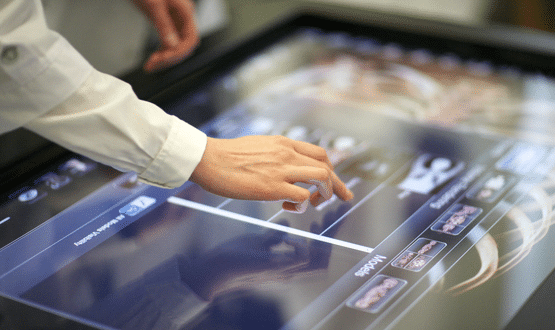AI cancer detection programme to be given government funding boost
- 11 December 2018

A £1.3 billion investment has been announced to help detect diseases earlier through the use of artificial intelligence as part of the government’s second Life Sciences Sector Deal.
The Accelerating Detection of Disease programme has been named as part of the deal, backed by private and public money.
The programme, which is being led by Professor Sir John Bell, will bring together NHS, industry and leading charities including Cancer Research UK, the British Heart Foundation and Alzheimer’s Research UK.
Backed by £79m of government funding, the programme will study five million healthy people with the aim of developing new diagnostic tests using AI.
Sir Bell said: “This Sector Deal is another major step forward for the Life Sciences Industrial Strategy in the UK. It has been hugely enabled by government and will initiate new projects that will be a magnet for further investment.
“Together, industry, charities, government and the NHS can tackle some of the major challenges to healthcare systems, including ageing and early diagnostics and, in doing so, can grow the economy and demonstrate what a modern Industrial Strategy looks like in action.”
The deal, which brings together 10 companies and is backed by wide range of organisations from across the sector, includes more than £1.3 billion of investment between the public and private sectors.
This includes £1bn from biopharmaceutical company UCB and a £30m investment in the UK by healthcare company Roche.
Around £20m of the money from Roche will be invested over three years in a precision cancer research partnership with the Christie NHS Foundation Trust in Manchester.
This will involve using genomic technology and big data to accelerate the next generation of digital clinical trials for rare cancers.
Health secretary Matt Hancock, said: “I want the UK to have the most advanced health and care system on the planet. Technology and artificial intelligence have the potential to revolutionise healthcare by unlocking the next generation of treatments, diagnosing diseases before symptoms appear and helping patients take greater control of their own health.
“Our world-leading plans to map 100,000 genomes is just one example of how innovation can deliver life-changing results for patients and we want to build on its success to provide patients with truly personalised care.”
The first government Life Sciences Sector Deal was announced in December 2017 and included an artificial intelligence (AI) programme that aims to develop digital pathology and radiology systems, which could eventually be implemented across the NHS.




3 Comments
50% of the people reading this will develop cancer at some point in their lives.
As a Cancer Research UK campaigner and a patient advocate with usemydata.org, I believe that anything which brings hope of improving early detection of cancer has to be welcomed. At the recent Britain Against Cancer Conference we were told that there are over 10,000 avoidable deaths per year from cancer. The NHS is lagging far behind the rest of Europe and the developed world so far as early detection is concerned.
Demand is increasing and the NHS simply cannot train, recruit and retain enough diagnostic staff to meet the 62 day cancer waiting time target. There is a permanent 10% staffing gap which successive governments have been unable to close.
An IA-enabled screening programme has the potential to save a significant number
of lives (10,000+) every year and reduce the demand on clinical services as the earlier cancer is detected the more effective the treatment.
Feels to me like everyone is suddenly so excited about AI, and don’t understand that image processing, machine learning, and true AI are just labels on a curve. All code. Why so little interest in the same thing, prior to the hype machine?
Will they get the consent of the 5 million healthy people they are going to study, or will they just help themselves to the health records of 5 million NHS patients? Probably a silly question. Industry will be buying personal data that it is not in the gift of the NHS to sell, but they will do it anyway, as they habitually do.
Comments are closed.